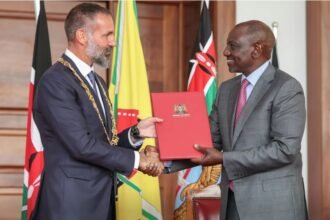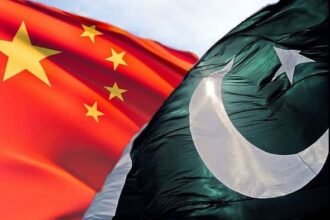Pakistan has once again reiterated its longstanding concern about the proliferation of terrorism from Afghan soil, urging the United Nations and the global community to ensure Afghanistan does not become a hub for extremist violence. Addressing a recent UN General Assembly session on the situation in Afghanistan, Pakistan’s Permanent Representative to the UN, Ambassador Asim Iftikhar Ahmad, underscored the growing threat of terrorism emanating from the war torn country, particularly from groups like the Tehreek-e-Taliban Pakistan (TTP), Daesh, and Al-Qaeda.
The ambassador’s stark warning comes amid a surge in cross-border terrorist activities targeting Pakistan, especially in its restive Khyber Pakhtunkhwa and Balochistan provinces. These incidents, which have grown more sophisticated and lethal in recent weeks, are primarily attributed to groups operating from ungoverned spaces within Afghanistan. Pakistan recently foiled an infiltration attempt, eliminating at least 30 militants allegedly backed by Indian intelligence. Such developments only reinforce Pakistan’s call for urgent international action.
Since the Taliban’s return to power in 2021, Pakistan has experienced an uptick in terror attacks, many of which have been traced back to Afghan based outfits. The TTP which operates from within Afghanistan with an estimated 6,000 fighters, remains a major concern. According to Ambassador Ahmad, the group is not only a threat to Pakistan but also to regional and global security. With increasing cross-recruitment between the TTP and Daesh, the landscape of militancy in the region has become even more volatile.
Pakistan’s ambassador emphasized that these terrorist groups are using advanced weaponry and equipment to target strategic infrastructure and key economic projects, including those under the China-Pakistan Economic Corridor (CPEC). Evidence of collaboration between the TTP and separatist outfits like the Balochistan Liberation Army (BLA) and Majeed Brigade further complicates the picture. These groups aim to destabilize Pakistan and sabotage development, particularly in the resource-rich yet restive southwestern province of Balochistan.
The problem, however, extends beyond Pakistan’s borders. Terrorist entities using Afghan territory as a launching pad threaten not only regional peace but also international security. This stark reality demands that the international community hold Afghanistan’s de facto authorities accountable. It is imperative that Afghan soil is not allowed to serve as a breeding ground for extremism.
Despite these challenges, Pakistan continues to engage constructively with its neighbors and global partners. In a recent high-level meeting in Islamabad, Pakistan and Afghanistan discussed key areas of mutual concern, including trade, transit, connectivity, and security. Both sides acknowledged terrorism as a shared threat, but Pakistan insisted on concrete actions against groups using Afghan soil to destabilize the region.
Ambassador Ahmad also drew attention to the broader humanitarian and economic situation in Afghanistan. He highlighted that since August 2021, Pakistan has absorbed over a million undocumented Afghan nationals, exacerbating domestic law and order challenges. For decades, Pakistan has hosted millions of Afghan refugees, often with minimal international support. The ambassador rightly stressed that the international community must share this burden more equitably.
He further called for the revival of Afghanistan’s economy and financial system, urging the unfreezing of Afghan assets and support for trade and investment. Such economic stabilization, he argued, is crucial not just for Afghanistan but for regional peace and prosperity.
Initiatives like the TAPI gas pipeline, CASA-1000 power project, the Uzbekistan Afghanistan Pakistan railway, and the extension of CPEC into Afghanistan are potential game changers. These projects could transform Afghanistan into a regional connectivity hub provided the security situation is brought under control.
The ambassador concluded his address with a message of hope and realism. For the first time in over four decades, Afghanistan is not embroiled in large scale warfare. Yet peace remains fragile. A stable Afghanistan at peace with itself and its neighbors, free from terrorism, and respectful of the rights of all its citizens is essential for regional harmony. But this vision will not materialize without sustained, pragmatic international engagement.
Afghanistan must not be abandoned. The world must pursue a balanced approach combining diplomacy, development, and decisive action against terrorism to prevent the country from descending once again into chaos.










